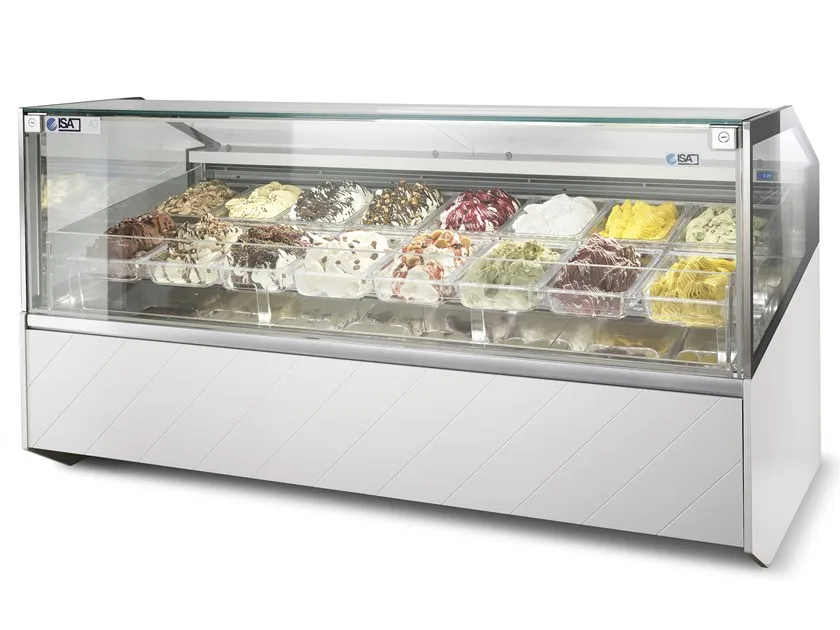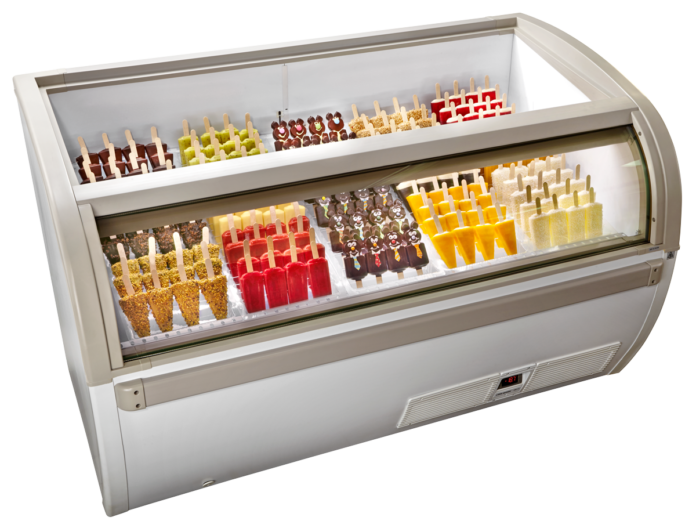If you run a business that requires storage of large quantities of frozen goods, then a commercial chest freezer is an essential appliance to have. These heavy-duty freezers are designed to meet the demands of commercial settings such as restaurants, supermarkets, and convenience stores. With a wide range of options available in the market, choosing the right chest freezer can be a daunting task. In this ultimate guide, we will walk you through everything you need to know about freezers, so you can make an informed decision for your business in 2024.
Understanding the Basics of Commercial Chest Freezers
Commercial freezers are a vital asset for businesses that require storage of large quantities of frozen goods. These heavy-duty freezers are specifically designed to meet the demands of commercial settings such as restaurants, supermarkets, and convenience stores. Understanding the basics of commercial chest freezers is crucial when choosing the right appliance for your business.
One of the main differences between commercial freezers and regular domestic freezers is their size and capacity. Commercial freezers are larger and have a higher storage capacity, allowing businesses to store a significant amount of frozen goods. Additionally, these freezers are built to withstand heavy usage and can maintain low temperatures even in high ambient temperatures.
When it comes to functionality, chest freezers often have features like adjustable temperature settings, defrost systems, and lockable lids for security. Some models may also include temperature alarms and digital displays for convenient monitoring. It’s important to consider the specific needs of your business and choose a freezer that offers the necessary features and functions.
Exploring the Types and Models of Chest Freezers
When it comes to commercial freezers, there is a wide variety of types and models available on the market. Exploring the different options can help you find the perfect freezer for your business needs.
One popular type of chest freezer is the solid-top freezer. These freezers have a solid lid that helps to retain the cold temperature inside and prevent the escape of cold air. They are ideal for businesses that require long-term storage and need to minimize temperature fluctuations. Another type is the glass-top freezer, which features a transparent lid that allows for easy visibility and access to the contents inside. These freezers are often used in supermarkets or convenience stores where customers can see and choose their desired frozen products.
In terms of models, there are single-door and double-door chest freezers. Single-door freezers are smaller in size and are suitable for businesses with limited space. They offer ample storage capacity and are commonly used in small restaurants or cafes. On the other hand, double-door freezers are larger and provide even more storage space. These are ideal for businesses that require storing a larger quantity of frozen goods, such as supermarkets or large-scale restaurants.
Additionally, there are specialized chest freezers designed for specific purposes. For example, some models come with sliding glass doors, making it easier for customers to see and choose their desired products. There are also freezers with adjustable temperature zones, allowing businesses to store different types of frozen goods at optimal temperatures.
The Importance of Capacity in Chest Freezers
When it comes to chest freezers, one of the most important factors to consider is capacity. The storage capacity of a freezer directly impacts how much frozen goods you can store, and therefore, how efficient and effective your business operations will be.
Having a commercial freezer with sufficient capacity ensures that you have enough space to store all your frozen products without overcrowding or risking spoilage. It allows you to stock up on inventory, take advantage of bulk discounts, and meet the demands of your customers consistently.
The capacity of a commercial freezer is typically measured in cubic feet or liters, and it can range from as small as 5 cubic feet to as large as 50 cubic feet or more. To determine the appropriate capacity for your business, consider factors such as the volume of frozen goods you typically store, the turnover rate of your inventory, and any future expansion plans.
It’s important to strike a balance between having enough storage space and not wasting energy and resources on excessive capacity. While it can be tempting to opt for the largest freezer available, keep in mind that a larger capacity freezer consumes more energy and requires more space. Assess your business’s needs realistically and choose a freezer with a capacity that meets your current and projected needs.
Energy Efficiency Considerations
Energy efficiency is an important consideration when choosing a chest freezer for your business. Not only does an energy-efficient freezer help reduce your carbon footprint and contribute to environmental sustainability, but it also helps lower your energy bills in the long run.
When looking for an energy-efficient commercial freezer, there are a few key factors to consider. First, look for a freezer with a high Energy Star rating. Energy Star-rated appliances are designed to meet strict energy efficiency guidelines set by the Environmental Protection Agency. These freezers are designed to use less energy while still providing optimal performance.
Another factor to consider is the insulation of the freezer. A well-insulated chest freezer can maintain low temperatures more effectively, reducing the need for the compressor to work harder and consume more energy. Look for freezers with thick, high-quality insulation that will help keep the cold air inside and prevent temperature fluctuations.
Additionally, pay attention to the type of refrigerant used in the freezer. Some refrigerants, such as hydrochlorofluorocarbons (HCFCs), contribute to ozone depletion and are being phased out. Opt for freezers that use environmentally friendly refrigerants like hydrofluorocarbons (HFCs) or natural refrigerants.
Lastly, consider the freezer’s defrosting mechanism. Manual defrost freezers tend to be more energy-efficient than automatic defrost models because they do not constantly heat and cool the evaporator coils. However, manual defrosting requires regular maintenance and monitoring to prevent excessive frost buildup.
Design and Material Features to Look Out For
When choosing a commercial freezer, it’s important to consider the design and material features that will best suit your business needs. These features can greatly impact the performance, durability, and convenience of the freezer. Here are some key design and material features to look out for:
- Exterior Material: The exterior material of the freezer should be sturdy and resistant to corrosion. Stainless steel is a popular choice as it is durable, easy to clean, and resistant to rust and stains. It also gives a sleek and professional appearance to your business.
- Interior Material: The interior material of the freezer should be easy to clean and maintain. Look for smooth, food-grade materials that are resistant to staining and odor absorption. This ensures that your frozen goods are stored in a clean and hygienic environment.
- Shelving and Storage Options: Consider the shelving and storage options provided by the freezer. Adjustable shelves can be convenient for organizing different-sized items, while baskets or dividers can help separate and categorize different types of frozen goods.
- Door and Lid Construction: Pay attention to the construction of the doors and lids. Look for freezers with heavy-duty, insulated doors that seal tightly to prevent temperature fluctuations and energy wastage. It’s also beneficial to choose freezers with self-closing doors or lids that stay open at certain angles for easy loading and unloading.
- Casters and Mobility: If you need the flexibility to move your freezer around, consider models with casters or wheels. This allows for easy cleaning and repositioning of the freezer as needed.
- Temperature Control and Monitoring: Look for freezers that offer precise temperature control and monitoring. Digital controls with adjustable settings allow you to maintain optimal temperatures for different types of frozen goods. Some freezers even have temperature alarms or display panels that provide real-time information on the freezer’s internal conditions.
Price and Warranty: Investing Smartly in Your Chest Freezer
Price and warranty are crucial factors to consider when investing in a chest freezer for your business. While price is a significant consideration, it’s essential to balance it with the quality and features offered by the freezer. Opting for a lower-priced freezer may save you money initially, but it may lack the durability and performance required for long-term use in a commercial setting.
When comparing prices, look for a freezer that offers a good balance between cost and quality. Consider factors such as the size, capacity, features, and brand reputation. It’s also a good idea to read reviews and compare prices from different suppliers to ensure you are getting the best deal.
In addition to price, consider the warranty offered by the manufacturer. A warranty provides you with peace of mind and protects your investment. Look for a freezer that offers a warranty that covers a reasonable period, preferably with comprehensive coverage for parts and labor. Be sure to read the warranty terms and conditions carefully to understand what is included and any limitations or exclusions.
Frequently Asked Questions about Commercial Chest Freezers
Q: How do I know what size of commercial chest freezer I need for my business?
A: Determining the size of commercial freezer you need depends on factors such as the volume of frozen goods you typically store, the turnover rate of your inventory, and any future expansion plans. Assess your storage requirements and choose a freezer with a capacity that meets your current and projected needs.
Q: What features should I look for in a chest freezer?
A: When choosing a commercial freezer, consider features like adjustable temperature settings, defrost systems, lockable lids for security, and temperature alarms or digital displays for convenient monitoring. Additionally, consider the design and material features, such as exterior and interior material, shelving and storage options, door and lid construction, casters for mobility, and temperature control and monitoring features.
Q: Are there energy-efficient commercial freezers available?
A: Yes, there are energy-efficient chest freezers available on the market. Look for freezers with a high Energy Star rating, which indicates that they meet strict energy efficiency guidelines set by the Environmental Protection Agency. Consider the insulation, refrigerant used, and defrosting mechanism of the freezer to ensure optimal energy efficiency.
Conclusion
After exploring the basics, types and models, capacity, energy efficiency, design and material features, price, and warranty considerations of chest freezers, you should now have a comprehensive understanding of what to look for when choosing the right freezer for your business.
By taking into account the specific needs of your business, such as the volume of frozen goods you typically store, the available space, and your budget, you can make an informed decision that meets your requirements.


